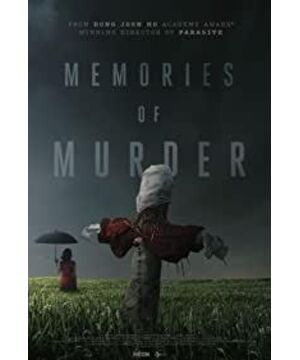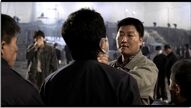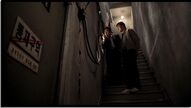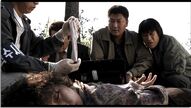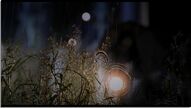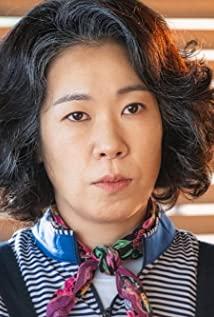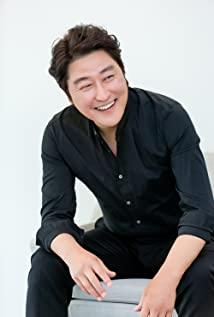In the 1980s, the left-wing ideology prevailed in South Korea, and the student demonstrations and workers’ strike movement almost shook the entire state apparatus. In the film, we can not only see the ubiquitous escape drills, but also feel the lack of trust in the authorities in the entire public opinion. It is precisely in such a time of panic and turmoil that such a cruel and mysterious serial murder case took place, and the deep stab it stabbed in the heart is more painful and unforgettable than ever, it seems become a collective memory. With the precipitation of time and the passage of time, it has become more and more heavy, complex and indescribable.
When the film was released in 2005, it triggered an unprecedented movie-watching boom in South Korea. I believe that no Koreans want to seek a so-called truth in this film. In other words, if the film really fabricated a "truth" for commercial needs, Giving the Korean people a "murderer" for them to vent and for their surprise will attract unpredictable criticism and abuse. Twenty years later, for all Koreans, this serial murder case is no longer a pure case or news event, it may become people's afternoon talk, the government's self-reflection and regulations, and even word of mouth. A stunning legend recorded in novels and movies, it has become an era complex. What people need is not an answer, not escaping, not glaring, not anger, but a collective nostalgia that pays attention, it is a redemption, a transcendent relief.
Of course, there are many who consider themselves to be the hardcore ashes of the movie to watch this movie with another expectation. They have read countless movies, and they have had various emotional experiences from the intense plot and exciting plots. They were looking for something to cheer up their old fritters in this supposedly zero-defect crime flick. Of course, they will be disappointed in the end. That's right, in "Memories of Murder", you can't see the fierce confrontation between the two sides of justice, the fun that the criminals deserve to be arrested, and you can't find the slow motion of the protagonist playing handsome. Structurally, the demolition and reconstruction during the three investigations seems to be monotonous and repetitive, and it does not promote the progress of the case, but at the end you will suddenly find that it has changed the lives of almost all the people who appear in the film: From Seoul The young police detective lost his calmness and moral integrity. Detective Park quit his job and his wife changed careers in frustration. The fool was run over by the rails and ended his chaotic and dazed life, but his old father, who opened a barbecue restaurant, He could only stay in his old age alone. The young man who liked pop music was innocently tortured and his life was in danger. He almost collapsed. The valet who used violence against the suspect without authorization ended up with amputation. The unfortunate ghost who ran into the woods to make a plane may have experienced this battle. Being honest may just continue in another place... Maybe that case is not solved in the end, maybe that case has nothing to do with you at all, but you can never deny that it has affected and changed you.
When we repeatedly sought the so-called truth in the process of watching the film, and wondered who was the real murderer in the film, and the truth was not revealed at the end of the film, we immediately became anxious and impatient, and even encouraged Su Tan behind the screen. Did we also become Detective Su when the officer shot that reckless Korean youth before the blood test report came down? So far, our purpose is for truth, for morality, or just for self-disclosure. This is also a reflection of the director to the audience. Justice is sometimes just an excuse for desire.
At the end of the film, Agent Su no longer appears. Detective Park listened to his wife's advice and abandoned the police to go into business. When he thought he could forget the past, stay away from the nightmare, and everything was over, a little girl's words instantly threw him into the abyss. Only then did he realize that some things were undeniable. When we thought we would be the masters of the times, the times silently buried us. When we thought that the times had silently buried us and them together, the times have already left a mark on us that cannot be erased for a lifetime.
In this movie, knots are the ones that can't be solved, and no answers are perhaps the best suspense, so even if you knew early on that the ending would be an open ending, when Park is no longer a police officer after a few years You'll still be moved by the look in the eyes of the police officer when he hears the best line in film history by the side of the wheat field. There, there is the fear of nightmares coming back, the entanglement of powerlessness, the anger of letting the thief go unpunished, the ambition to return to the arena, the sigh of creation to make people, and maybe there is another man to catch the thief and solve the case. , the memory of that era of rivalry. It was the worst of times and the best of times.
When the perverted killer is old and no longer kills, the police who arrested him have changed their profession and no longer investigate cases. They are like old comrades who fought on a battlefield, revisiting their old places during the harvest season, and doing the same thing. An indescribable tacit understanding.
The legal sentence was pronounced, and the statute of limitations for appeal had expired, and Detective Park knew that meant that even if he caught a criminal in the future, he could not be sentenced. Then, when the shackles of this layer of public office have been lifted, when he has been deprived of the rights and obligations to judge sins on behalf of the people, he is thrown into the industrial assembly line like a used waste product. The once indestructible relationship between soldiers and thieves has now become unfamiliar and distant. No one is pulling him by the collar to force him to catch the thief. He even found that the hatred he once held was gradually becoming numb. He still didn't even know what the murderer looked like. So, would he have the ability to catch him again? , Whether it is necessary to arrest him again, and whether he can still be caught, this may be a question that Officer Park cannot understand after racking his brains for the rest of his life.
Any seemingly great and sensational event, no matter what value or desire you are driven by, or how much blood you pour into it, when it cools down, in front of time and memory, there is only human interaction. The question of consumption, who is right and who is victorious, will foolishly no longer have any meaning to be raised.
View more about Memories of Murder reviews


